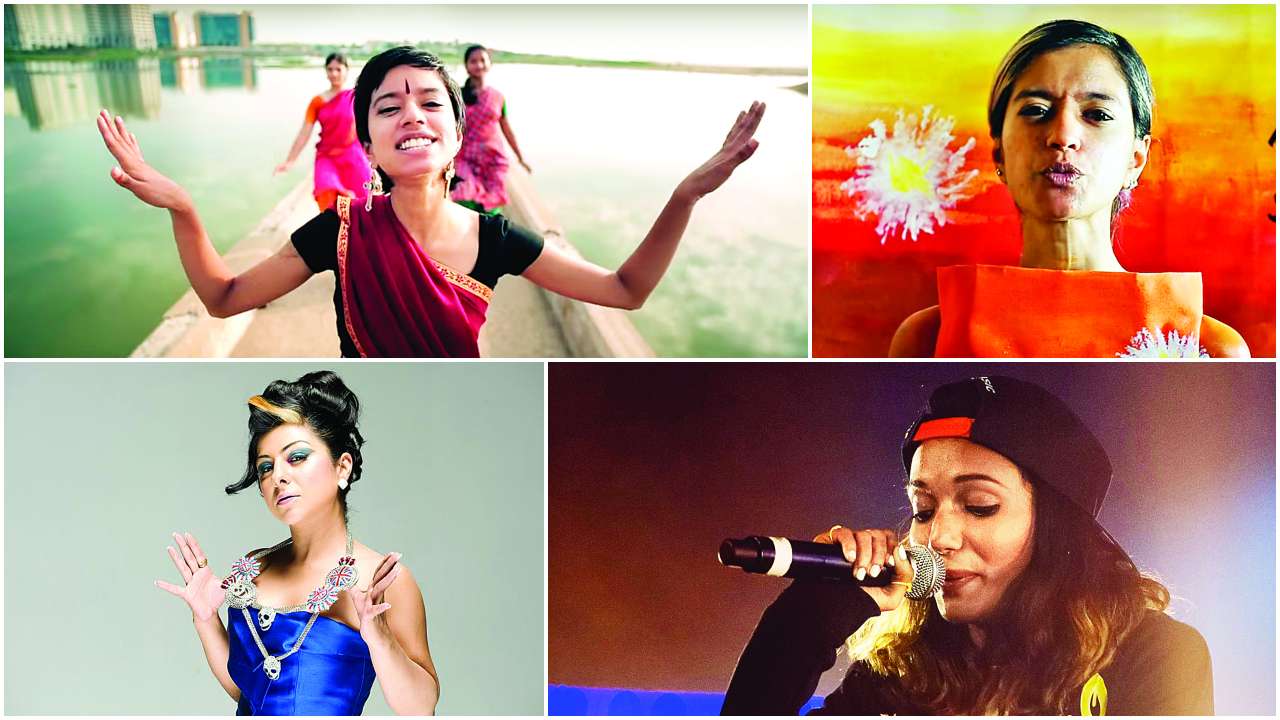
When Deepa Unnikrishnan, better known as her moniker DeeMc, slowly made the transition to rapping, her parents decided to go with the flow. "In the beginning, they didn't even know what I was up to," she recalls. "As long as I continued studying, they looked at it as a pastime. Once I started working, they looked at it as merely a passion, something that can never become a profession. However, as a result of several opportunities in the last two years, I've been able to sustain solely through hip-hop. So now they're pretty cool about it and proudly tell others what I'm up to," she says.
Today, DeeMC is one of the brightest (female) stars in Indian hip-hop. This year alone, the '94-born rapper from Mumbai, worked with a Berlin-based NGO to create their Menstrual Hygiene Day anthem titled No More Limits. The music video garnered around two million views on Facebook alone and the campaign encouraged viewers to speak about these 'taboos'. At the same time, she represented India at an all-female hip-hop festival in Brussels, Belgium, alongside international hip-hop stars like Malikah from Lebanon, Ayben from Turkey, BGirl Roxy from USA, Krtas Nssa from Morocco, and Kab & Lipass from Belgium, among others.
Women of colour, however, have a tougher time in the scene, says Unnikrishnan. "It's not just rap; for women in India to dream about anything takes courage. I am fortunate I grew up in an urban area. If my parents had never moved out of Kerala, there would've been no chance of me even knowing hip hop, let alone becoming an artist," she says. However, she adds, "when it comes to choosing an off-beat career, even men face lot of difficulty in our country as we have no infrastructure to support art here."
What makes DeeMc's contribution to hip-hop unique is not just her work as a woman, but also how she pushes for social change via rap.
At the other end of the spectrum is rapper Sofia Ashraf, who became a household name in 2015 when she released Kodaikanal Won't, a music video addressing mercury pollution in Kodaikanal from a thermometer factory owned by Unilever, a multinational consumer goods company.
Picking the beat from Nicki Minaj's hit Anaconda, Ashraf created history as Unilever CEO Paul Polman rushed to disentangle the PR nightmare and released compensation for the 591 affected workers who had struggled for 14 years.
But what makes these women use rap to bring attention to issues ranging from menstrual hygiene taboo to environmental issues?
"Rap seems to have a bad reputation. The truth is that rap has always been a means of subversion growing up in the ghettos of America alongside blues and jazz. It grew with a population that was finding new ways of self-expression. So rap in itself is a very expressive art form, even cathartic," explains Ashraf, adding that the genre is perfect to express her thoughts since she finds the optimum fusion of poetry and rhythm. She adds, since the medium is young, angry and aggressive, it only lends more to the cause attracting a young audience which is "probably unaware of the perils of industrial pollution and other issues."
There is, however, more to lose in the desi hip-hop scene that gain. The reality behind the glamour and bling is shocking. "There are times when I am scheduled to perform at a local gig, and the organiser doesn't take care of any of the expenses. So the expenses , like flight tickets, transportation of my instruments and stay, must come from my pocket," says Ashraf. When it comes to getting paid, though, Ashraf says she only gets a 10 per cent share of the entry fee (which usually ranges anywhere from Rs 300 to Rs 700). "On an average, some 30-odd people attend a gig. Adding to that, I have to split the 10 per cent with my band members," she explains. She recalls an instance when she had to split Rs 1,600 among four people.
On a larger scale, Hard Kaur, the OG (original gangster) of female Indian rappers, had to sell her insurance to ensure the release of her last album Rising Mix Tape Volume 1, which brought some of the best of Indian desi hip-hop to the world. "I waited a long time for India to get serious about its hip-hop scene and to take independent artists seriously. But it's been far too long and I can see Bollywood and popular music platforms dictating the terms," she laments.
Thus continues the battle for recognition and earning for indie artists – a battle beyond gender and genre.